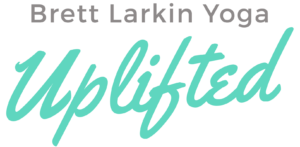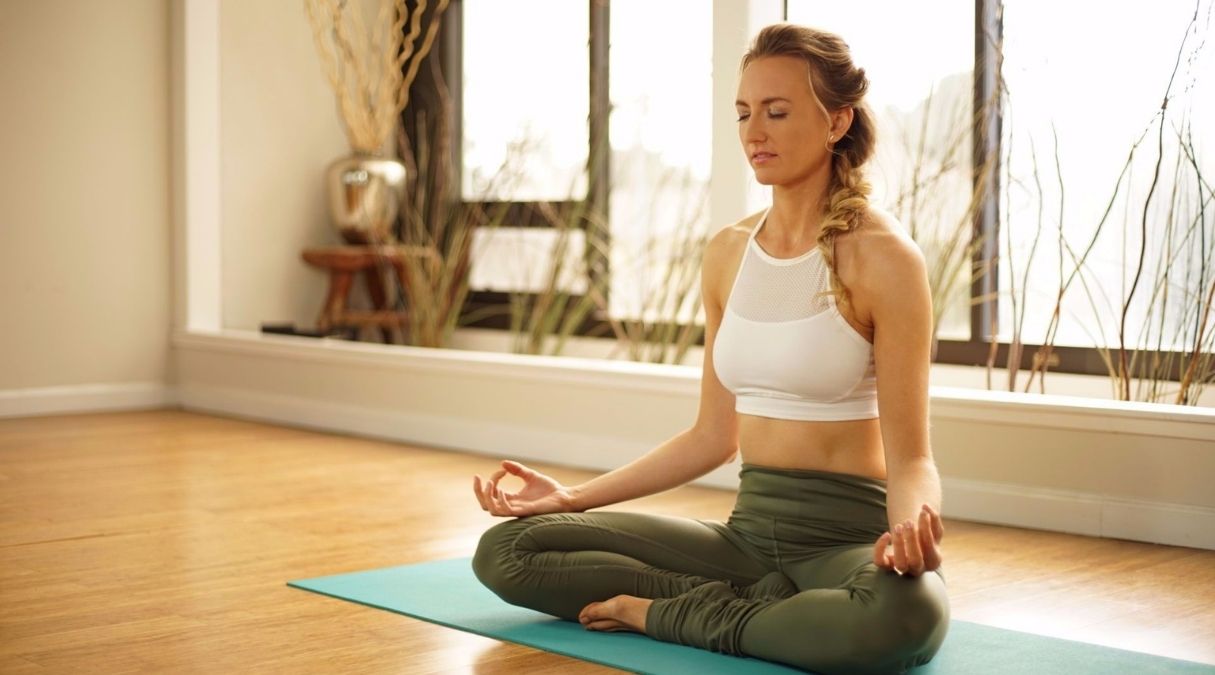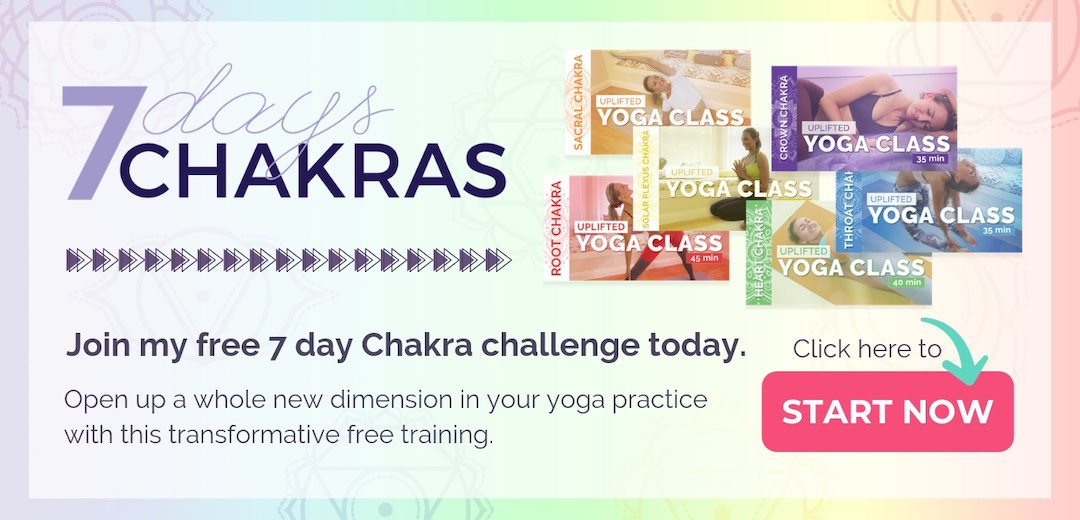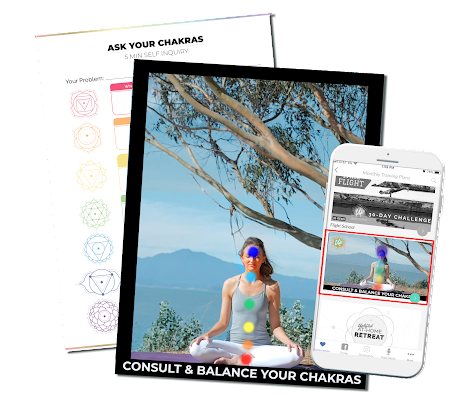Chakras are all the rage lately.
Like, it’s almost impossible to go to any major publication like Elephant Journal or MindBodyGreen without seeing some article promising chakra cleansing or chakra essential oils for major healing.
While I don’t wanna knock these publications and their writers (because some of them really know what they’re talking about), it almost makes me uneasy to see this kind of topic so mainstream.
Why?
Because it sort of devalues the ancient wisdom that comes with it.
Rather than consuming this information with an open and eager heart, many of us are simply consuming it as a commodity, hoping to hop onto the next trend and find the next escape from whatever tormented reality we are currently living in.
Or is that just me?
So I decided to put together this comprehensive post about the chakras, along with a full post on each and every one.
Because it’s important to me that we talk about our chakras, what they are like when they are out of balance, and how to heal them.
The more that we talk about this ancient yogic wisdom and healing opportunities, the more that we can actually learn from them.
5 Healing Ways to Balance Your Chakras
So how do you actually balance your chakras, anyway?
There are many different ways, according to all of the blog posts and new age yoga teachers out there.
And to be honest, a lot of them are right.
Luckily, there are some pretty manageable things that you can do to balance your chakras right now from the comfort of your own home.
And the best part?
Doing these things will help balance your mental health, too.
1. Meditation
Meditation is probably the most effective way to balance the chakras. There are many chakra meditations that can be found online, but it is also easy enough to practice on your own. Each chakra is associated with a seed sound, or bija mantra and a color. Chakra affirmations are also useful in healing and balancing. Each of these can be used to help you go deeper into your meditation and make it more effective.
Your mental focus during meditation should be on the positive attributes of the particular chakra. Focus on eliminating any emotional blockages by visualizing them dissolving away. See and feel what it would be like to be free from those attachments.
2. Yoga
A regular yoga practice is incredibly effective at balancing the chakras. As with meditation, you can visualize and focus your attention on the different chakras throughout your practice. As you are doing the postures, visualize the colors that correspond to the chakra you are focusing on
Moving through the postures will work out stiffness and tension in your physical body. As your body opens up, the energy flows more freely. With an uninterrupted flow of energy your chakras will balance themselves out.
Each chakra has certain yoga postures that help to balance it. This is generally related to the part of the body that the chakra is associated with.
3. Breathwork/ Pranayama
The use of breathing techniques not only helps to relax the body, but it also allows you to control the flow of energy through your body. The best pranayama for balancing is Nadi Shodhana, or alternate nostril breathing.
For this pranayama, block one nostril at a time and take deep cleansing breaths in and out. Be sure to do the same number of breaths on each side. It will balance the nadis as well as bring together the left and right hemispheres of the brain, easing stress and anxiety.
4. Crystals
Crystals hold special energy and can help you connect to various parts of your consciousness. Each chakra has different crystals associated with it and that will provide you with the greatest benefit.
- Root chakra: hematite, garnet, obsidian
- Sacral chakra: carnelian, amber, topaz
- Solar plexus chakra: citrine, jasper, tiger’s eye
- Heart chakra: rose quartz, amazonite, malachite
- Throat chakra: turquoise, aquamarine
- Third eye chakra: amethyst, lapis lazuli
- Crown chakra: clear quartz, moonstone
Choose the crystal that corresponds to the chakra you want to focus on. You can also choose one of each for total chakra balancing.
Place the crystals near you while you are meditating to enhance the energy of the crystal.
5. Essential Oils
Aromatherapy can be used for a variety of different ailments. These plant-derived oils can also be used for chakra balancing. As with crystals, there are different oils that correspond to different chakras.
The oils can be used by simply breathing them in or applying them topically. It is important to dilute the essential oils with a carrier oil, such as coconut or olive oil, if you are applying it directly onto your body. These are potent oils that can irritate the skin if they are not diluted.
Read More: Bija Mantras: The Chakra Mantras and Their Sounds
Take my chakra quiz to find your dominant chakra:
How to Balance The Seven Chakras
Our chakras exist at seven points along the body. Each one is associated with a different set of organs and systems. The chakras represent not only parts of the physical body, but parts of your consciousness as well.
1. Muladhara, the Root Chakra
Where is it: The lowest of the chakras is situated at the perineum in the male body and at the cervix in the female body. The direct translation of the word is ‘root center’.
What is it: Muladhara is the base of your physical and energetic body. This chakra controls your basic needs for safety and survival. It is also where your kundalini energy resides.
When it’s blocked: Blockages in the root chakra can manifest into problems can affect how you feel in the world. You might experience a lack of belonging or codependence on another person.
How to balance this chakra: Grounding is an effective practice for balancing Muladhara. Since this chakra is all about our connection to the earth, physically connecting with the ground can balance this energy. Go outside and walk mindfully. Fully experience each time your foot hits the ground and visualize your connection to it.
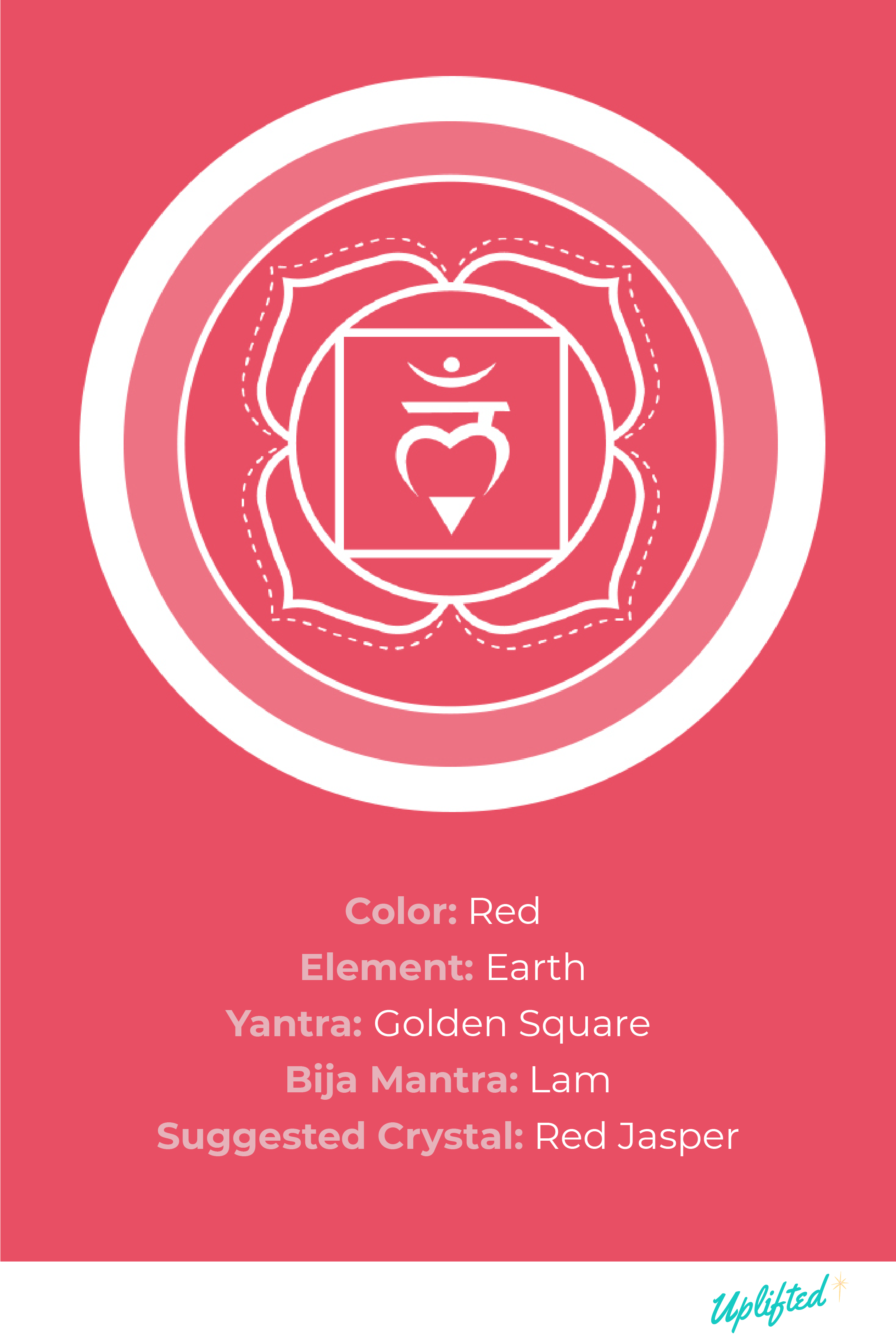
2. Svadisthana, the Sacral Chakra
Where is it: About two fingers’ width above muladhara chakra is the concentration point for svadhisthana.
What is it: Svadisthana is associated with creativity and pleasure. In the physical body it is associated with the tongue and genital organs.
When it’s blocked: If your sacral chakra is blocked, you may become unemotional and closed off to others. A blockage might also lead to feelings of low self-worth.
How to balance this chakra: The sacral chakra’s element is water, so spending time near a body of water can help open it up. Even just taking a bath or shower can help balance your chakra, while relaxing your body at the same time. Yoga for healing this chakra should focus on hip opening postures. Poses such as wide angle or bound angle pose are simple yet effective. Focus on slow, healing movements linked with the breath.
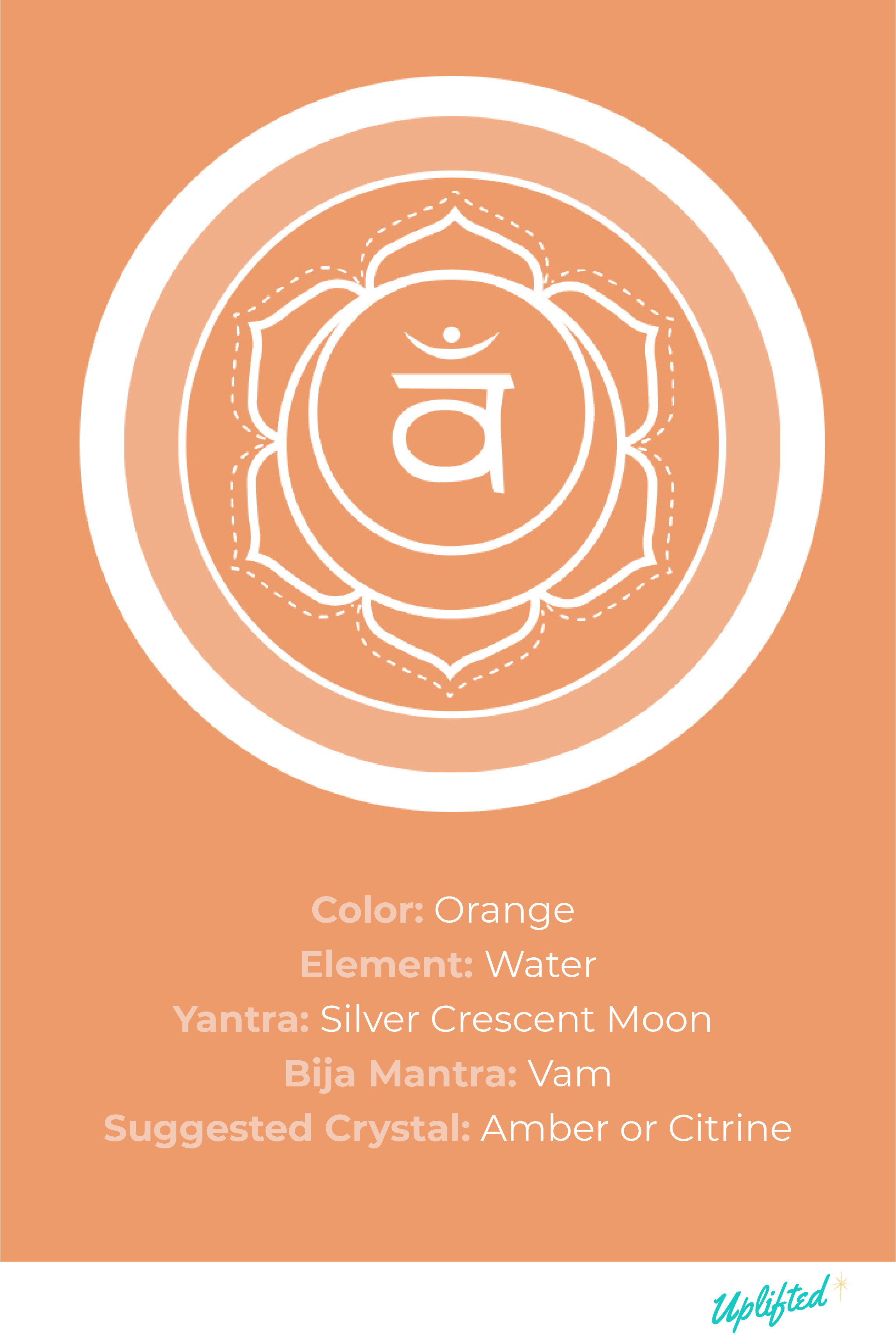
3. ManiPura, the Solar Plexus Chakra
Where is it: Situated in the spine behind the navel is manipura chakra.
What is it: This is the seat of power and confidence. It is what propels you through life and is responsible for your personal and professional success. In the physical body, the solar plexus is the centre that governs digestion and food metabolism.
When it’s blocked: A blockage in this chakra might cause you to feel insecure and anxious. Digestive issues can also be symptoms of an unbalanced solar plexus chakra.
How to balance this chakra: If you want to use yoga to balance this chakra, choose asanas that focus on core strength. Warrior pose is the easiest asana for opening up this chakra. You can simply hold it for a few minutes every morning and your chakra will balance. Since the solar plexus chakra is associated with the sun and fire, simply going outside can help. Meditating or doing yoga outdoors can maximize the healing benefits of your practice. However, even just going for a walk in the sunshine will do the trick.
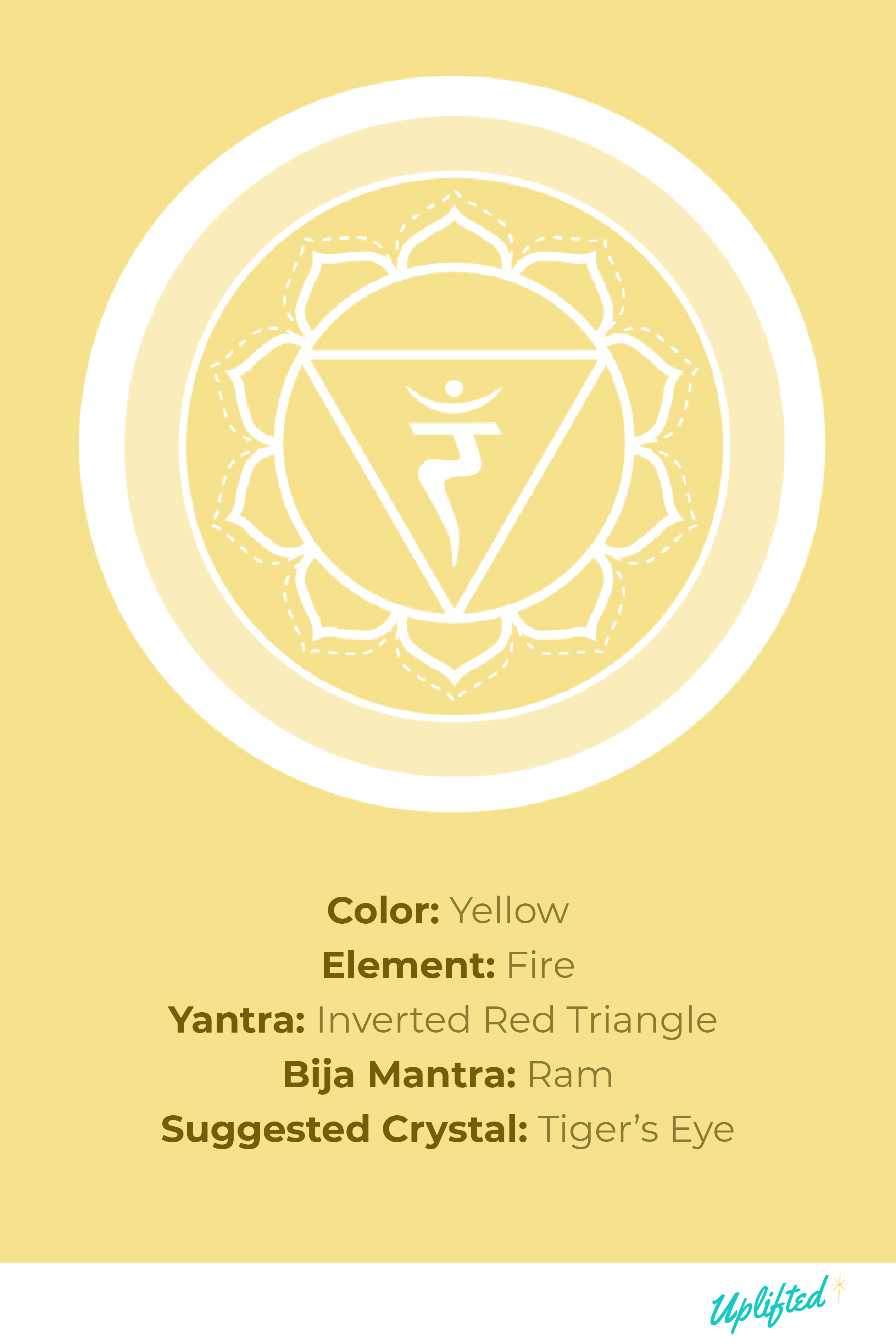
4. Anahata, the Heart Chakra
Where is it: Situated in the spine, behind the sternum, is anahata chakra.
What is it: The heart chakra is associated with love, openness, empathy and acceptance. On a physical level, this chakra is associated with the heart, lungs and circulatory system.
When it’s blocked: As you might guess, a blocked heart chakra might cause someone to feel closed off and distant to others. This can lead to feelings of loneliness.
How to balance this chakra: Forgive those who may have hurt you. A lot of blockages in this chakra are caused by holding onto past hurt, anger or grief. Letting go of these feelings can remove the blockages and allow the energy to flow more freely. Yoga is always there to help balance your chakras as well. For anahata focus on heart openers, especially camel pose.
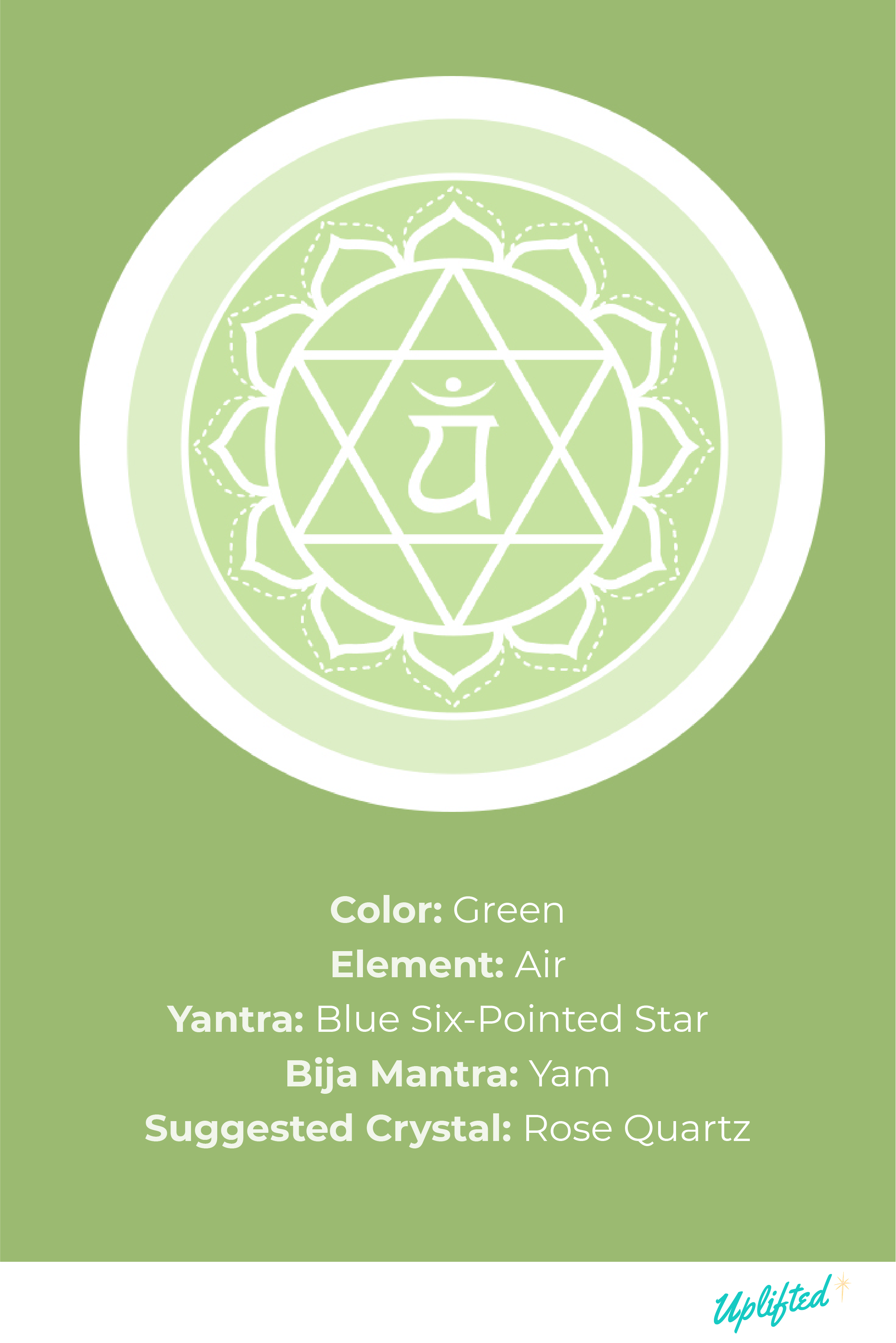
5. Vishuddi, the Throat Chakra
Where is it: Situated at the back of the throat, is vishuddhi chakra, the centre of purification.
What is it: This chakra is associated with our voice and communicating our truth to the world around us. It is also related to listening and expression of the self. Vishuddi governs the ears, vocal cords and thyroid gland.
When it’s blocked: When your throat chakra is blocked, you have trouble speaking your truth and expressing your needs.
How to balance this chakra: To have a healthy throat chakra there needs to be complete honesty, with others and with yourself. Keep a journal and take the time to write down your feelings with complete honesty. This allows you to get all of your feelings out, even if you don’t get the opportunity to verbalize them. Sing your heart out! Singing works the vocal muscles and will activate vishuddi. The vibrations of the vocal cords will break up blockages and allow the energy to flow more freely.
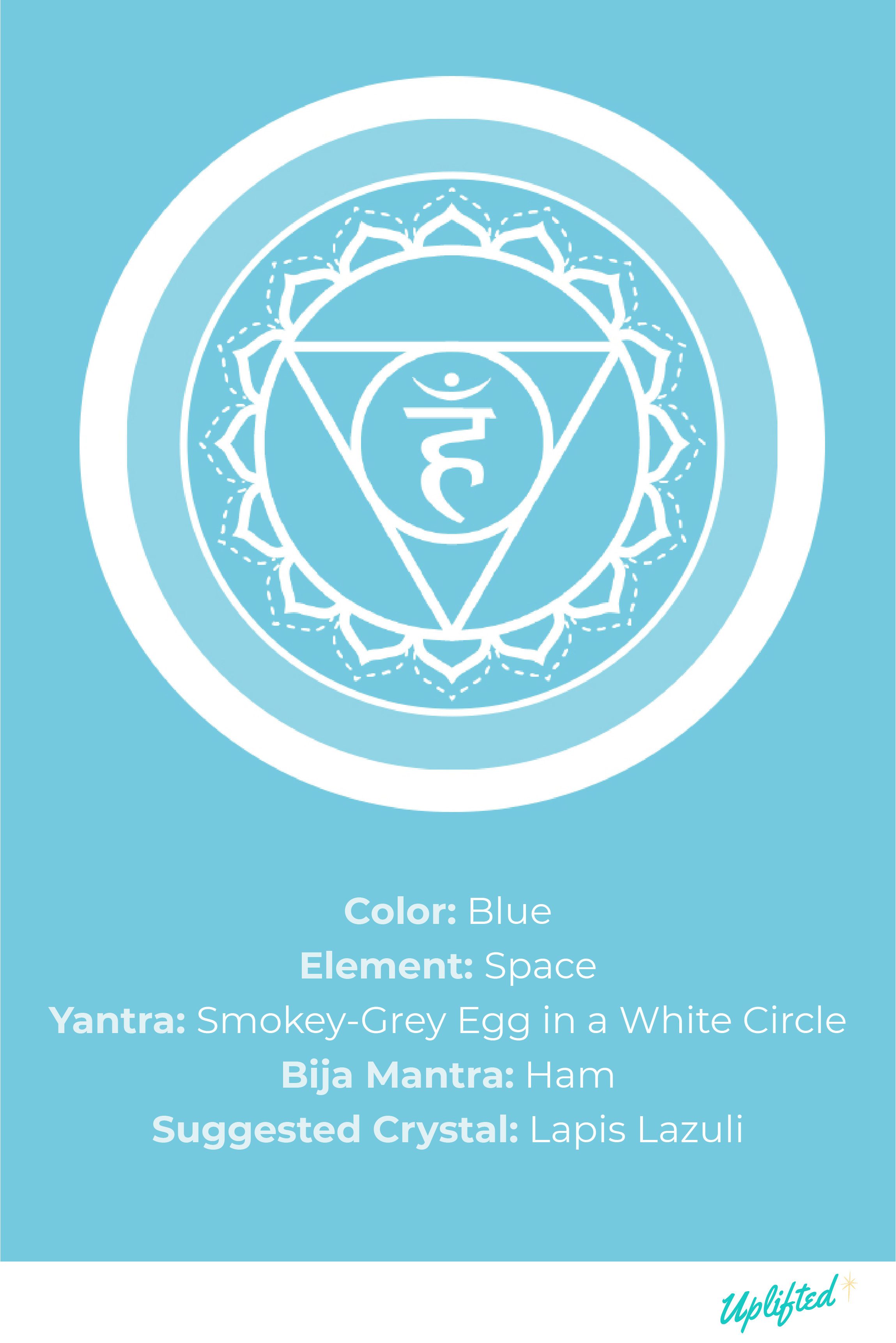
6. Ajna, the Third Eye Chakra
Where is it: This chakra is located at the space above the brow, between the eyes.
What is it: Ajna is the source of our intuition or higher truth. The element of this chakra is the mind. This is the centre where wisdom and intuition develop.
When it’s blocked: When your third eye chakra is blocked, you may struggle to have faith in your broader purpose. This can lead to feelings of insignificance and the inability to make decisions. Physical manifestations of a blockage in this chakra include headaches, eye discomfort and sinus pain.
How to balance this chakra: The use of affirmations can be very effective for balancing the ajna chakra. Affirmations help you to target limiting beliefs and replace them with something more positive. You may want to focus on your intuition, sense of purpose and spirituality.
A few of my favorites are:
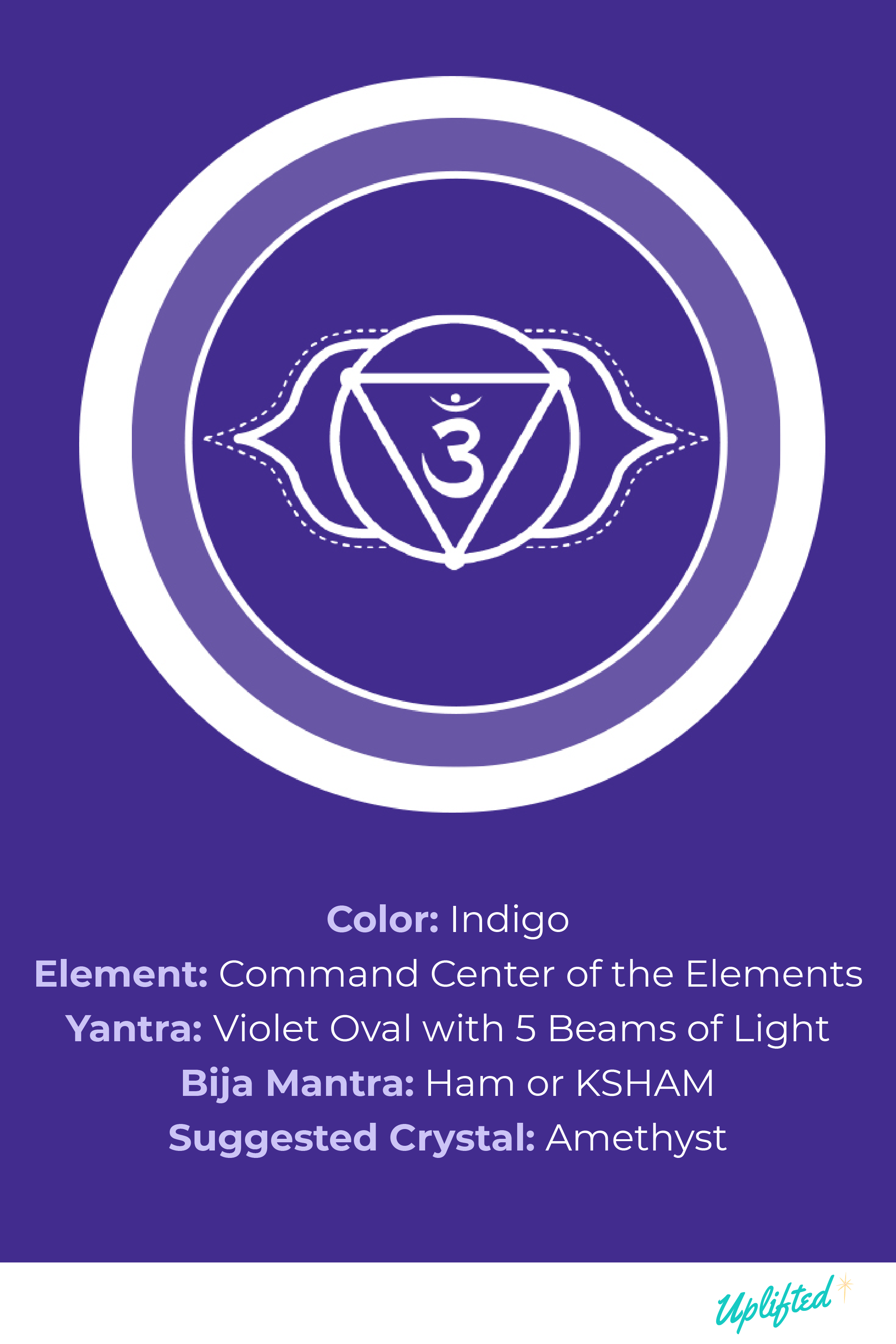
- “I hear my intuitions and I know they will lead me to my purpose.”
- “I am on my true path.”
- “I live every day in accordance with my life’s purpose.”
As you may have guessed, yoga is also an effective tool to balance your third eye chakra. Postures like child’s pose and eagle pose will provide you with the greatest benefit.
7. Sahasrara, the Crown Chakra
Where is it: Situated at the crown of the head is your seventh chakra, sahasrara. It is the seat of highest consciousness.
What is it: This chakra is where consciousness and matter come together. The individual self is connected to the supreme soul. It is our connection to spirituality and pure bliss.
When it’s blocked: A blockage in the crown chakra keeps you disconnected from the spiritual side of life. You may feel a strong attachment to material possessions or achievements.
How to balance this chakra: Sahasrara is most strongly influenced through meditation. Envision a golden light illuminating the entire crown of your head, similar to a halo. Feel the glow of the light recharge both your body and spirit. Meditating outside will allow for a deeper connection. The sound (or bij mantra) of the crown chakra is ‘Om’. This is believed to be the creating sound of the universe. Chanting ‘om’ will allow the sound to vibrate through your body and serve as a connection to the universe.
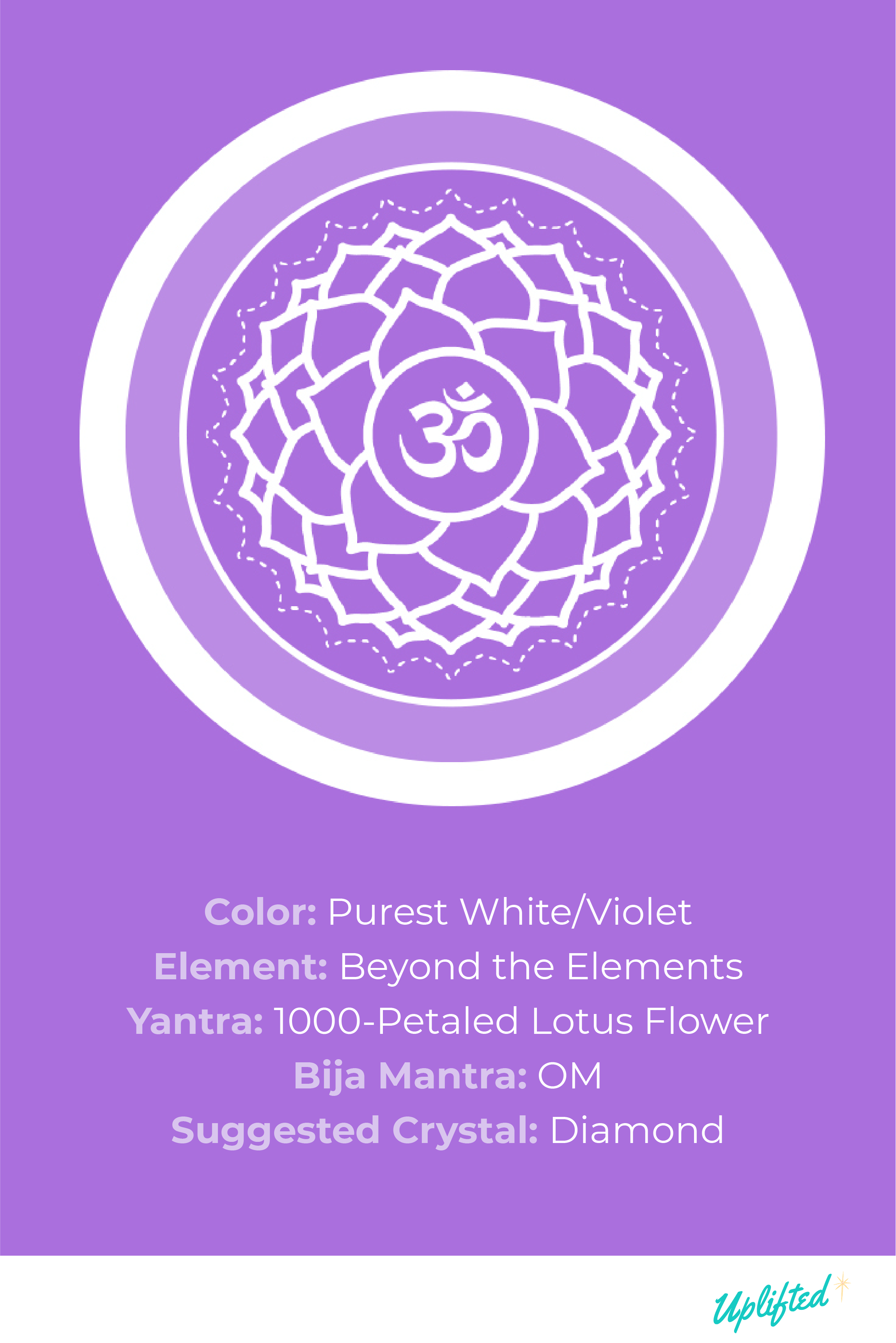
As you work through the chakras, things may come up. Past hurt, unprocessed emotions and discomfort can all come up through this process. Remember that this is temporary and will eventually lead to a healthy chakra system.
What Are Chakras?
The word ‘chakra’ in Sanskrit translates to ‘wheel’. Although, our chakra is actually more of a vortex than a wheel.
Energy flows through it in two ways. It spins in a clockwise direction moving the energy out of the body. A counterclockwise rotation pulls energy in from the environment and people around you.
The chakras themselves are not physical, but they interact with the physical body through two major vehicles,
- the nervous system
- the endocrine system.
To best understand what chakras are, imagine little highways of energy running through your body. These little highways are called nadis.
The nadis are to your energetic, or pranic, body what blood vessels are to your circulatory system.
In our spine is our major energy line called the susumna nadi. Just like the word chakra comes from a Sanskrit term meaning ‘wheel’, according to ancient yogic traditions, the chakras are the places where different energy lines, or naids, meet.
Understanding the Chakra System
According to ancient texts, there are seven major chakras in the human body. All of these lie along the spine, as that is where the susumna nadi is located. Each chakra is associated with different physical and psychological characteristics.
In general, our aim is to rise up through the chakra system. Moving away from acting out of survival and moving to making decisions based on intuition.
This begins at our root chakra, deep in our pelvic region, and progresses upward toward our crown chakra. The idea is that the energy must be able to flow freely through our system, never leaving us stuck in any one place or moment.
Opening and Closing Chakras
Although we talk a lot about opening and closing chakras, I need to admit something.
Chakras don’t really open or close.
Right? I know. Let me explain.
Chakras are these wheels or vortexes of energy, so that means they can’t ever be fully closed. However, it is possible for energy to get stuck and cause blockages.
And there are a lot of things that can cause blockages.
The blocks can be physical and form as a result of dietary choices, lack of exercise and stress. Emotional and psychological blocks can be more difficult to identify. Not properly processing certain feelings and emotions can cause them to accumulate. Mental illnesses such as depression and addiction also have a huge impact on our chakra health.
So, our chakras are never really closed per se, but they may be blocked or out of balance. Instead, of “opening and closing” place your focus on balancing the chakras.
Read more: Chakra Symbols and Meanings: What You Need To Know About Cosmic Geometry
What is Chakra Balancing?
Think of the chakras all working together as a system. When one is blocked and the flow of energy restricted, the others will overcompensate. This throws off the entire system and can lead to an imbalance in more than one area.
Chakra balancing is the process of restoring an even flow of energy through the chakra system. Rather than simply, and sometimes abruptly, unblocking chakras (which can lead to Kundalini syndrome), it’s best to focus on finding a balancing flow of energy. This can be done through a variety of different ways. Some techniques may be more effective for one over another.
Benefits of Chakra Balancing
Balancing the flow of energy through the chakras assures that the entire system is working in harmony. Harmony in your energetic body can mean improvements for your physical body as well.
The more freely energy can flow through us, the more freely we can move throughout our day. Or body, mind, and spirit will be more available to the amazing experiences that surround us each and every day.
It’s hard to really pinpoint the benefits on something like ‘reduced blood pressure’ or ‘improved mental health’ because everyone is different.
We’ve got different bodies and different energy compositions. We experience things differently
But the more in balance you are, and this is true for any aspect of your life, the easier it is to handle whatever life throws at you.
How do you know if your chakras are blocked?
The truth is that you don’t “know”, not in the sense that you can take your temperature and know for certain that your manipura is blocked. Lots of people feel blockages in lots of different ways. Sometimes there are physical symptoms associated with a blockage and other times there are emotional symptoms. It really depends on the individual (I know, that’s annoying to hear). There are Indian gurus who have done years and years of sadhana to obtain other-worldly skills, such as seeing which chakras are blocked. Sounds trippy but if you read the Yoga Sutras, then you’ll know what I’m talking about. Reiki healing can also offer some insights as well.
Otherwise, it often goes hand in hand with your intuition. If you feel creatively blocked, like your ability to play and create is stifled, then your svadistahana chakra might be blocked. If you are feeling indecisive like you don’t know what’s true and where to guide your attention, then your visuddha chakra might not be running smoothly. But if anyone tells you for sure that there is a physical symptom associated with a blocked chakra, then they don’t fully understand how the chakras work. Full stop.
Does chakra balancing work and how do you unblock your chakras?
Chakra balancing is a lot like getting your (spiritual) oil changed. When you do certain practices (in yoga, they’re called kriyas), you’re helping guide energy in a direct way. Imagine that you have a plugged drain. It’s clogged with hair, dead skins, WHATEVER, so the water tries to trickle past the blockages. And when it can’t get past, it sort of dissipates to all open points around the blockage or back up and out of the sink or tub. It’s kinda like that with the chakras. If your energy cannot pass through the chakras because the wheel (the literal translation for the Sanskrit term ‘chakra’) isn’t turning properly, then you need some spiritual Drain-O to push through the gunk. That’s what kriyas are and why I love Kundalini so much. These practices help to get the chakras spinning so that the energy can flow.
How long does it take to balance a chakra?
Unfortunately, there is no direct answer to this. If anyone tells you otherwise, they don’t fully understand the chakras. FULL STOP. Some people can be practicing yoga for LIFETIMES and their chakras remain blocked whereas others can do an intense sadhana with a prescriptive set of kriyas and have them unblocked within a week. Indian healers can also unblock your chakras but it’s a bit difficult to find true healers that you can trust. The best way to balance your chakras is to facilitate energetic movement through yoga (not the physical kind, but the spiritual kind). With dedicated practice, you can find balance day by day.
Myths about the Chakras
The chakras are perhaps one of the most misunderstood yogic concepts out there and yet we hear Western yogis speak authoritatively on “balancing your chakras” all. The. Time.
Chakras originate from the texts and tradition of Tantric yoga. For thousands of years, Tantric yogis used different versions of the chakra energy centers in yoga practice and meditation.
These practices did not necessarily resemble the crystals and gemstones of chakra balancing today. Much of what we hear taught and circulated today is based on faulty Sanskrit translations, opinion masquerading as fact, and (I’m sorry to say it) utter bullsh*t.
For example, while in the West we virtually only hear of seven main chakras, there are actually reported to be over 114 such energy centers in the body.
Another key misconception is that the chakras have a definitive location in the physical body.
In actuality, the chakras deal with the subtle body. This means that the seventh chakra cannot be mapped or studied in the physical body alongside your muscles and vital organs.
However, Sanskrit scholars such as Christopher Wallis have suggested that the major chakras found at the third eye center (ajna chakra) and at the crown of the head (sahasrara chakra) are almost exclusively reported to be found in these regions of the physical body.
Finally, it’s important to understand which teachings on chakras and energy come from the original Tantric sources and which do not.
When we speak of the emotional or psychological qualities of each chakra, we are not spouting ancient yogic wisdom.
Same goes for associating each chakra with a crystal, essential oil, precious metal, gemstone, or planet.
Rather, the ascribing of mental-emotional states to each chakra began with iconic psychology researcher Carl Jung. The more esoteric connections were drawn later, based on Jung’s work.
All this is not to say that different interpretations of major chakras are worthless. It is up to you to experience the power of each teaching for yourself and discover what resonates with your process of spiritual development and human understanding.
Read More: Chakra Colors 101: What Do They Mean and Why Do They Matter?
Next Steps:
- Explore my Chakras knowledge hub to learn more about the Chakras from the blog.
- Check out my YouTube channel and find some yoga classes that you can try out for yourself!
- Join Uplifted for exclusive chakra content that you can access right from the app. Take a deep dive into your practice with me this year!
YOU MIGHT ALSO LIKE
- Kundalini Yoga for Chakras: An Uplifted Guide to Energy Balance
- Chakra Dance: An Intuitive Way To Move Energy
- Crystals For Chakras: Unlock Your Energy and Balance
- Third Eye Chakra Blocked Symptoms & Healing Techniques
- Third Eye Chakra Opening Symptoms And How To Open Your Sixth Chakra
- Opening Crown Chakra Symptoms And How To Balance Sahasrara Chakra
- Opening Root Chakra Symptoms And How To Balance Muladhara
- Symptoms Of Heart Chakra Opening And How To Balance Anahata Chakra
- Sacral Chakra Awakening Symptoms And How To Balance Svadhisthana Chakra
- Blocked Throat Chakra Symptoms & Healing Techniques
- Physical Symptoms Of Solar Plexus Chakra Opening
- Opening Throat Chakra Symptoms And How To Balance Vishuddha Chakra
- Heart Chakra Blocked Symptoms & Healing Techniques
- Chakra Opening Symptoms: Signs You’re Unblocking Your Chakras
- Dominant Chakra Test: Which Chakras Are Out Of Balance?
- Blocked Sacral Chakra Symptoms & Healing Techniques
- Root Chakra Blockage Symptoms & How To Unblock It
- 7 Chakra Imbalance Symptoms: Energetic, Physical, And Emotional
- Solar Plexus Blocked Symptoms And How To Balance
- Samana Vayu: The Energy of Balance & How to Access It
- 15 Crown Chakra Affirmations to Embody Your Highest Self
- 15 Third Eye Chakra Affirmations to Deepen Spiritual Insight
- 15 Throat Chakra Affirmations for Confident Communication
- 15 Heart Chakra Affirmations to Unlock Unconditional Love
- 15 Sacral Chakra Affirmations for Joy & Emotional Healing
- 15 Solar Plexus Chakra Affirmations to Activate Personal Power
- 15 Root Chakra Affirmations for Essential Wellbeing
- What is the 8th Chakra and How Can We Tap Into It?
- What Are Nadis? Your Guide to Energy Channels In Your Body.
- Everything You Need To Know About Using Healing Stones
- Chakra Yoga: The Best Yoga Poses To Balance Your 7 Chakras
- What Are The Chakras And Kundalini Energy Flow? Here Is My Complete Breakdown.
- 35 Powerful Chakra Affirmations For Major Healing & Balancing
- Bija Mantras: The Chakra Mantras and Their Sounds
- The 7 Chakra Symbols Explained: Their Meaning & Shapes [+PICTURES]
